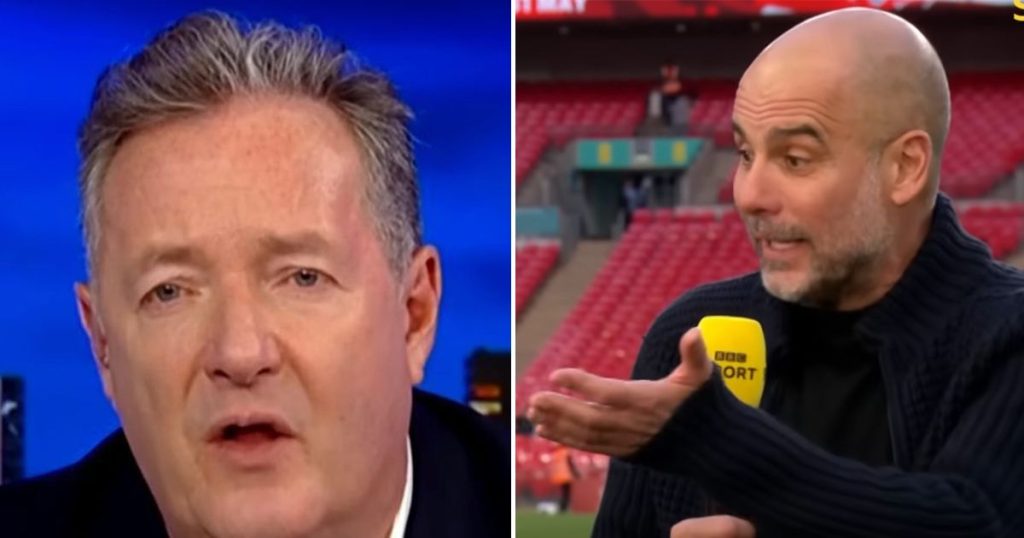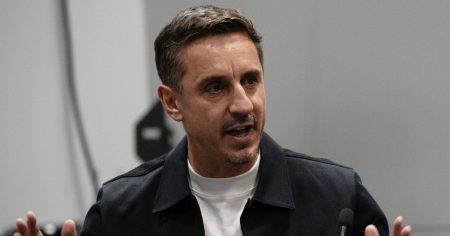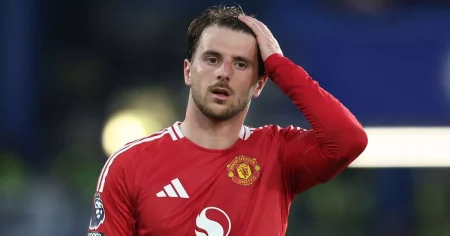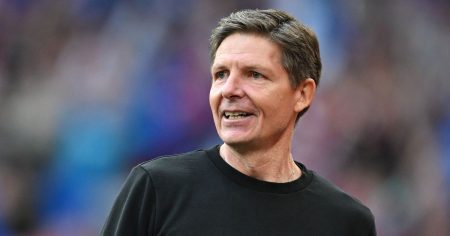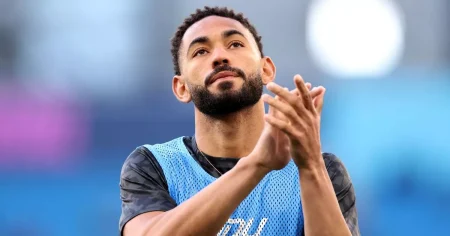Pep Guardiola expressed his frustration with the decision to schedule Manchester City’s FA Cup semi-final match against Chelsea just days after they played Real Madrid in the Champions League quarter-finals. The City manager criticized the Football Association for the scheduling, highlighting the lack of recovery time for his players. He was particularly upset with the fact that Manchester United and Coventry, who were facing off in the other semi-final, had not played since the previous Saturday. Arsenal manager Mikel Arteta supported Guardiola’s comments, but Arsenal fan Piers Morgan disagreed, suggesting that Guardiola’s complaints were unwarranted given City’s financial resources and squad quality.
After Manchester City’s 1-0 win against Chelsea thanks to a late goal from Bernardo Silva, Guardiola continued to voice his displeasure about the fixture congestion. He referred to the scheduling as “unacceptable” and highlighted the physical toll it takes on players, especially after a grueling Champions League quarter-final against Real Madrid. Guardiola’s emotions were on full display during a post-match interview with Gary Lineker, where he criticized the decision-makers for not considering player welfare and recovery time. Despite Guardiola’s frustration with the situation, there were contrasting opinions on social media, sparking debates about fairness in scheduling and the physical demands placed on elite footballers.
During the interview with Lineker, Guardiola reiterated his concerns about the scheduling, questioning why City had to play their FA Cup semi-final on Saturday when other teams had more rest time. He emphasized the challenges of preparing for such crucial matches against in-form opponents like Chelsea with limited recovery time. Guardiola’s comments ignited a debate about the balance between commercial interests, broadcast schedules, and the welfare of the players. While Guardiola’s frustrations were evident, his ability to influence scheduling decisions was limited, leading to a broader discussion about the power dynamics in modern football.
Guardiola’s post-match rant captured the attention of fans and pundits alike, with many divided on whether he had a legitimate point about fixture congestion or if his complaints were unjustified given City’s financial advantages. The intense schedule of top-level football, especially with multiple competitions at play, has been a recurring topic of debate and criticism. Guardiola’s passionate defense of player welfare and recovery needs brought the issue to the forefront once again, raising questions about the priorities and responsibilities of football governing bodies in ensuring a balance between competitive demands and player well-being.
The reactions to Guardiola’s outburst ranged from supportive to critical, reflecting the complexities and challenges of managing a top-tier football team in a demanding and competitive environment. While some sympathized with Guardiola’s concerns and understood the physical toll it takes on players, others viewed his complaints as part of the job and a result of managing a high-profile club like Manchester City. The debate around fixture congestion, scheduling conflicts, and player welfare is likely to continue in the football community, with different perspectives and interests shaping the discussions on how to best manage and prioritize the needs of players and clubs in modern football. Guardiola’s emotional response highlighted the ongoing tensions and pressures faced by managers in navigating a demanding fixture list and competing at the highest levels of the sport.









